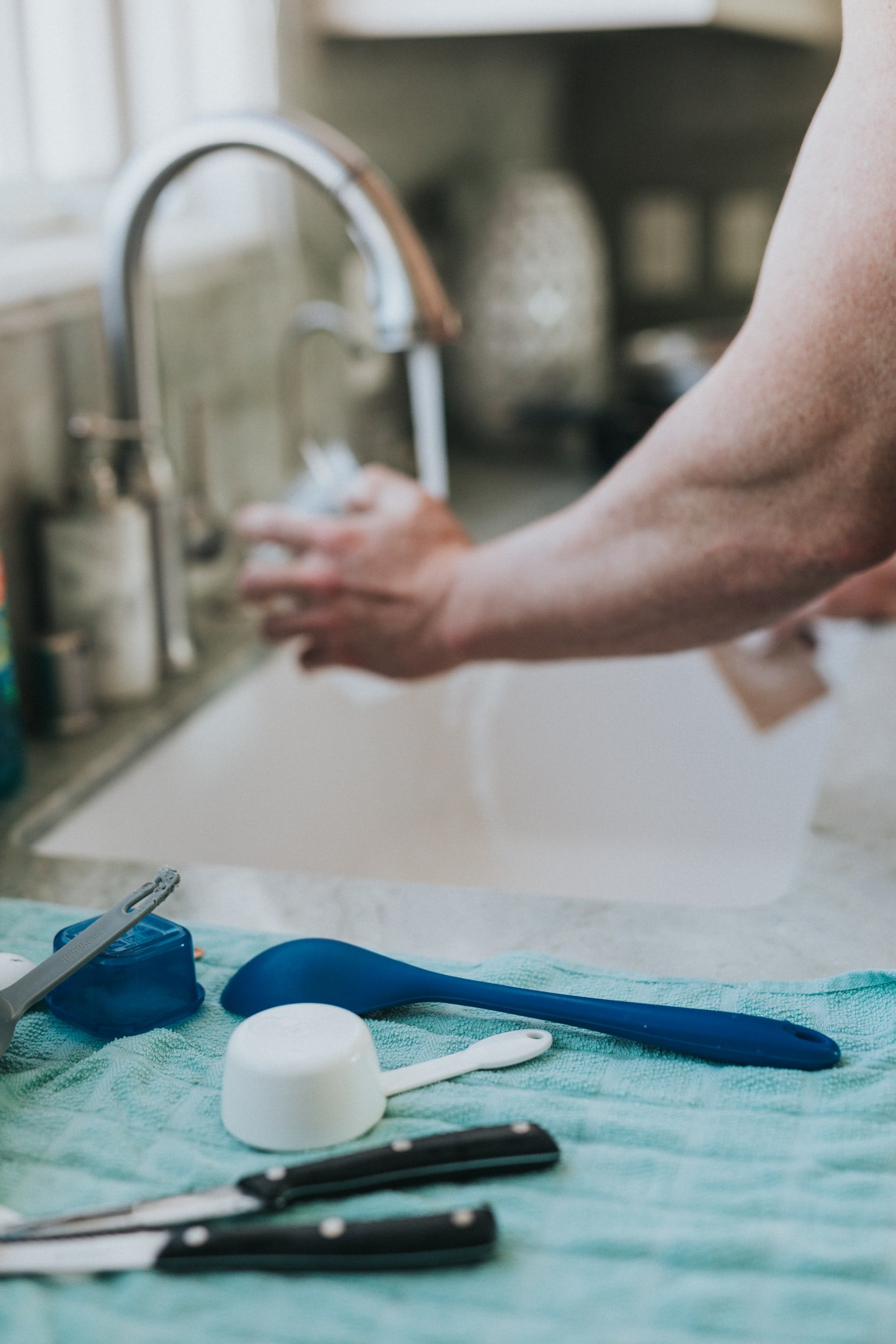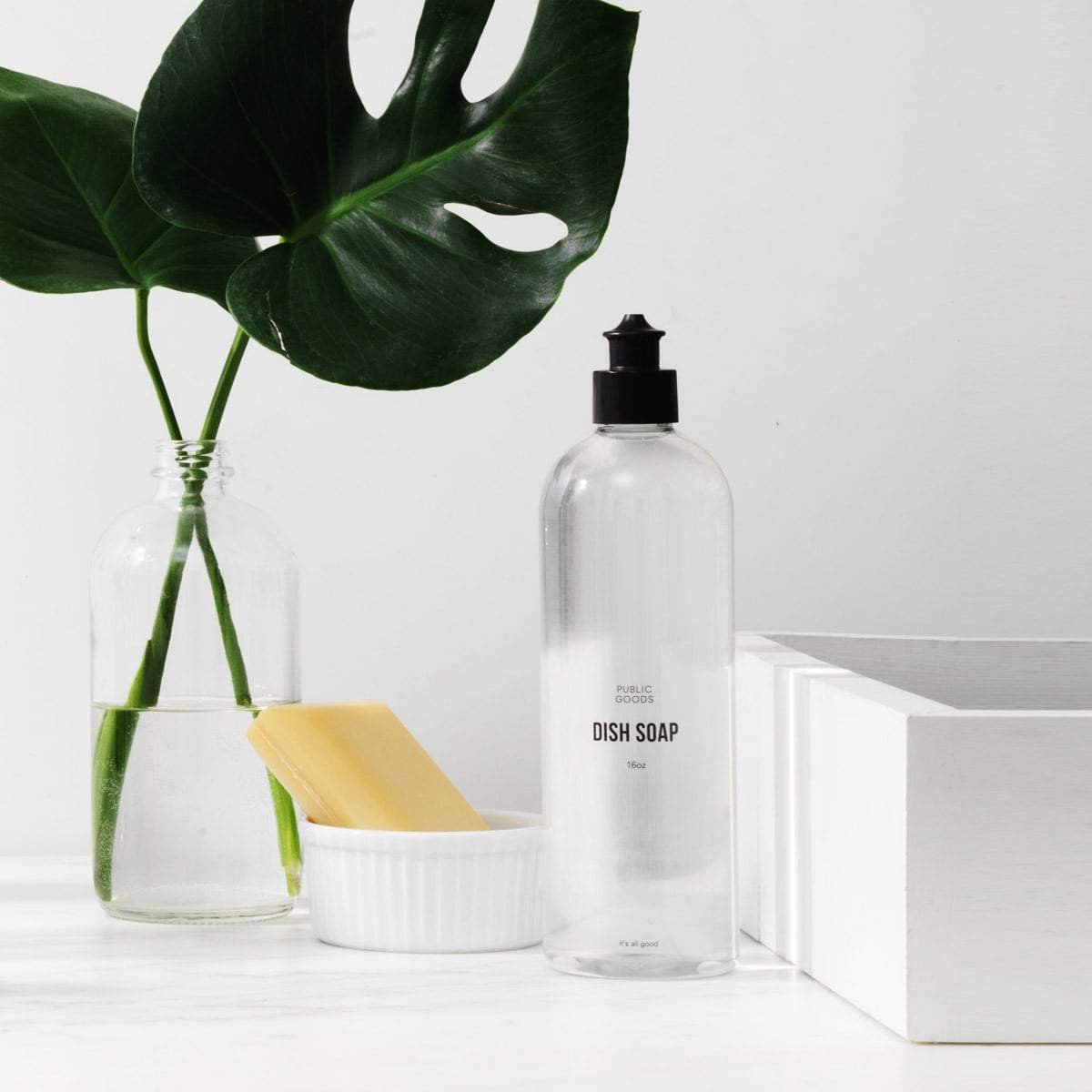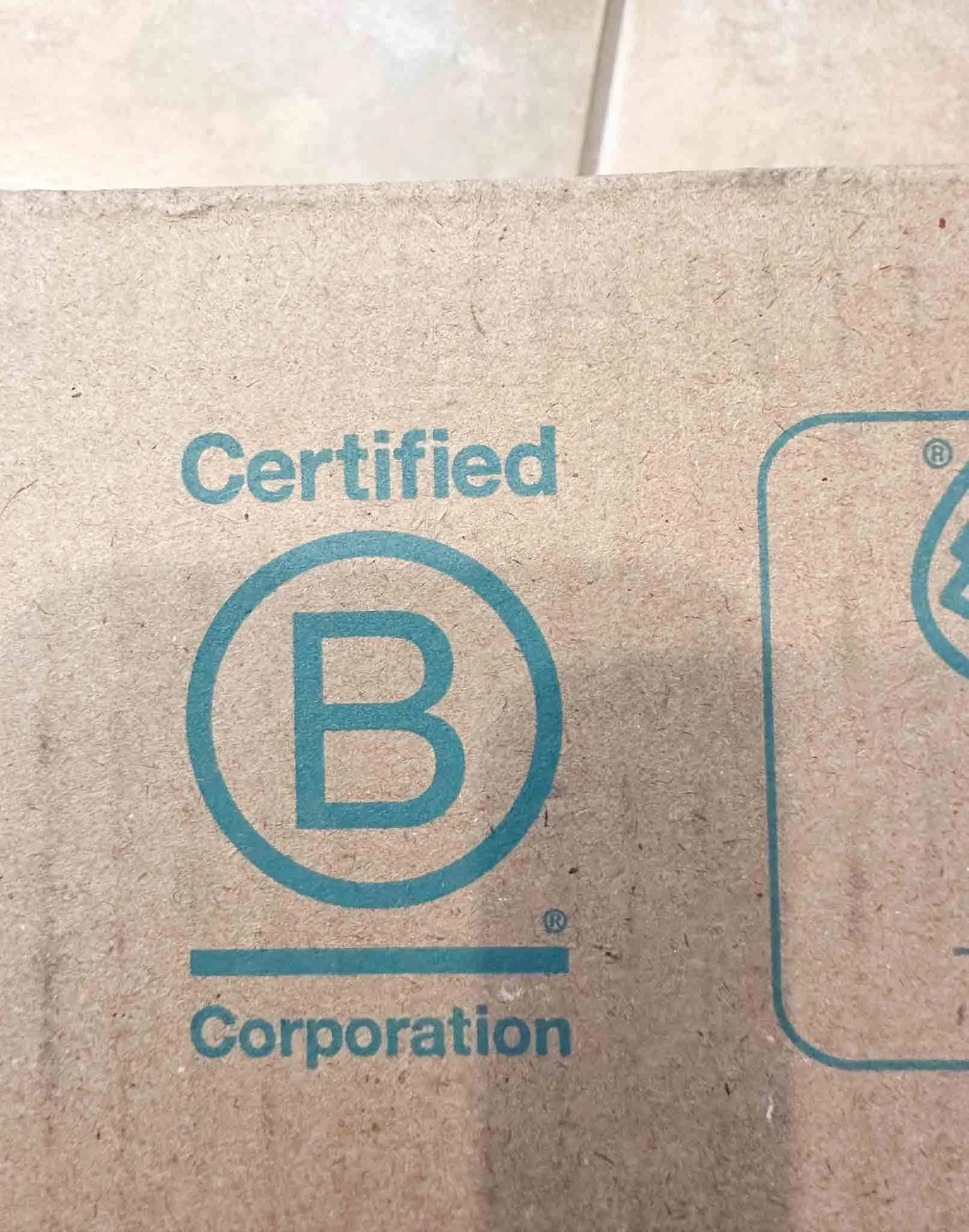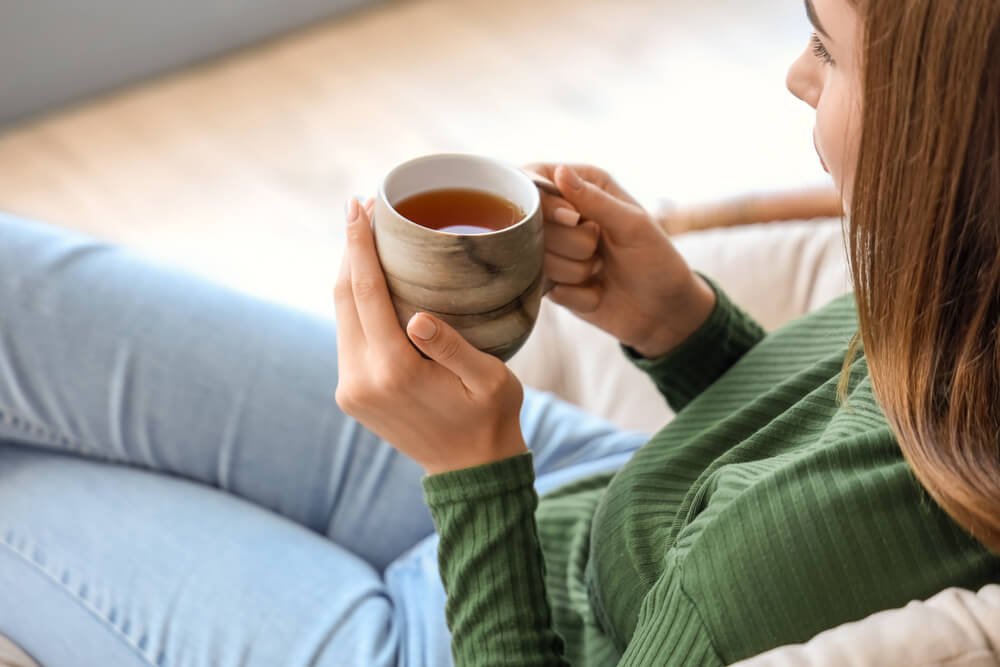The Best Eco-friendly & Non-Toxic Dish Soap
After a meal, once the leftovers have been scraped off it's time to turn on your sink to clean those dirty dishes, squeeze in dish soap, then plunge your hands into the warm, soapy water to wash your dishes and get them sparkling clean.
While the dishes come out clean, the opposite may be true of your body and the environment.
Let's explore some of the ingredients found in regular dish soap, learn about the sustainability of these products, and meet some of the best dish soap brands if you're looking for a cleaner option.
This post does contain some affiliate links which means The Honest Consumer will receive a commission if you decide to purchase, however, at no additional cost to you!
Is Dish Soap Toxic?
When using dish soap, a residue is sometimes left behind on our dishes, which we may ingest when we next use them.
This residue has the potential to be harmful. But what is in this everyday item that forms such a residue?
Dish soaps, like many cleaning and even beauty products, can contain a mixture of chemical ingredients, some of which are potentially toxic.
However, while these ingredients can be hazardous or irritants in their pure form, they are diluted when using dish soap. It’s not really about how toxic the chemical in your dish soap is, it’s about how much you ingest.
Furthermore, many of these chemicals occur naturally in our environment, so we are exposed to them anyway. That being said, some of these chemicals are bio-accumulative, meaning they build up in your body and the environment over time.
So, the more you are exposed to them, the more chance you have of absorbing, ingesting, or inhaling them, which each amount – even if only a trace – building up in your body over time. And we wash dishes at least once a day.
There’s a whole cocktail of ingredients in conventional dish soap and you may find some of them listed on the bottle’s ingredients label. These include:
phosphates
triclosan
chlorine
SLS (sodium lauryl sulfate) or SLES (sodium laureth sulfate)
DEA (diethanolamine)
MEA (monoethanolamine)
TEA (triethanolamine)
formaldehyde
phthalates
fragrances
Human Health Impacts of Dish Soap Ingredients
The health impacts of some of these harmful chemicals range from causing skin irritation to being probable carcinogens. Let’s dive a bit deeper into the specifics of some of these ingredients.
Triclosan is added as an antibacterial agent and has been known to be an endocrine disruptor, because of its ability to interfere with hormones and thyroid systems. When mixed with chlorine in faucet water, it can form chloroform, a probable human carcinogen. DEA, MEA, and TEA have also been known to disrupt hormones.
Commonly found in shampoos and conditioners, SLS and SLES help hair care products, as well as dish soap, to foam. However, it can cause rashes and allergic reactions. Formaldehyde is a probable human carcinogen. This chemical might not be labeled as such on your bottle. Keep an eye out for words like methanol, methyl aldehyde, and methylene oxide, which may indicate the presence of formaldehyde.
Fragranced products should be used with caution. Brands are not required to list what ingredients have been used to make a fragrance, which means there could be hundreds of additional, potentially harmful, chemicals in a product. Rather try dish soaps that are unfragranced or use natural essential oils
To reduce your skin’s direct exposure to hot water and dish soap, consider wearing reusable gloves while washing dishes. As for the chemical residue left behind on your dishes after washing: make sure you rinse your dishes thoroughly. So, wash your dishes with dish soap, then rinse them with fresh, hot water to get rid of as much residue as possible.
And while dish soap can be used as an alternative to hand soap in a pinch, stick to hand soap or bar soap when and where possible. The phosphates and fragrances in dish soap can lead to skin irritation, especially if you have sensitive skin.
Environmental Impacts of Dish Soap Ingredients
These chemicals can impact not only our health but have consequences for the environment too.
After we’ve washed our dishes, we drain the water, washing down toxic chemicals, thus polluting rivers, lakes, streams, and oceans and posing a risk to aquatic life.
While these harsh chemicals may be heavily diluted, our continuous washing of dishes and draining of dishwater can cause chemicals to build up in waterways, just like they can in our bodies.
Phosphates, for example, when allowed to enter waterways and build up, can deplete oxygen levels, promoting toxic algae growth.
Chlorine is extremely toxic to fish and when triclosan is present in waterways, it can be converted by sunlight into dioxins, a highly toxic compound that can affect aquatic life, as well as humans.
The environmental ramifications don’t stop with the toxic chemicals.
Dish soap comes in plastic bottles, adding to the plastic pollution problem by clogging up landfills, polluting waterways, and posing a risk to aquatic life who may ingest the plastic.
To minimize the constant purchase of plastic bottles, look for refills to avoid buying a new bottle every time.
Alternatively, get a glass bottle and buy refill packs or find a store where you can fill your own bottles with dish soap, eliminating plastic completely. Use as little dish soap as possible.
A little goes a long way.
This will make the dish soap last longer, creating less need to go out and buy another bottle.
When looking for a less toxic dish soap to use, find out what else the brand you want to try is doing to protect the environment.
5 Non-Toxic Dish Soaps to Try
If you're looking to choose cleaner household products this list of dish soaps features natural products with a clean ingredient list and sustainable values.
The non-toxic dish soap brands provide a safer alternative and are sure to leave your dishes sparkling!
Bestowed Essentials Eco-friendly Dish Soap Bar
Bestowed Essentials strives to be eco-friendly by implementing measures such as sourcing bulk ingredients, purchasing secondhand equipment and tools for their warehouse, and using eco packaging.
Where possible, packaging is avoided completely – like with their dish soap.
Made using olive oil, water, coconut oil, sodium hydroxide, French green clay, and Pacific sea salt, it’s a solid bar, eliminating the need for a plastic bottle. It’s available unpackaged and unlabeled and is vegan and cruelty-free.
Bestowed Essentials dish soap block can be purchased for $16. I’ve personally tried this dish soap and it works really well!
Public Goods Natural Dish Soap with Fresh Scents
Public Goods offers a range of personal care and cleaning products, including dish soap and castile soap.
Made in the USA, their dish soap is made from purified water, coconut-based active ingredients, citric acid, sea salt, mandarin orange, and basil essential oils.
Free from many of the nasty ingredients often found in dish soap, it is also vegan, biodegradable, and greywater friendly.
Using 100% pure soap made with organic, vegetable-based ingredients, their castile soap is free from parabens, synthetic fragrances, SLS, and phthalates.
Public Goods dish soap and refills can be purchased from $4-$8.
Blueland’s Dish Soap with Plastic-Free Packaging
Blueland has a range of cleaning products available for your home, from laundry detergent tablets and wool dryer balls to dishwasher tablets and dish soap.
They also have reusable tins and bottles, along with refill packs, so that you can cut down on plastic bottles; and their packaging is recyclable, compostable, or both. Blueland’s products are free of artificial dyes and fragrances, parabens, and phthalates.
Dr. Bonners Castile Soap Made with Organic & Fair Trade Ingredients
Made with organic and certified fair trade ingredients, Dr. Bronners’ pure-liquid castile soap has many different uses, including its use as dish soap.
Scented with essential oils, their castile soap is available in peppermint, lavender, tea tree, and eucalyptus, and packaged in a bottle made from 100% post-consumer recycled plastic.
ECOS Vegan Dish Soap
With every ingredient carefully selected, ECOS strives to offer cleaning products that are better for you and the environment. They implement biodegradable, hypoallergenic formulas for their products, featuring plant-derived ingredients that do not bioaccumulate.
By reducing, repurposing, and recycling more than 95% of their manufacturing and office waste, Ecos achieved TRUE Platinum Zero Waste certification in 2015. Ecos dish soap is 100% vegan and made without parabens, dyes, or phthalates.
Hopefully this guide helped you learn what to look for the next time you purchase dish soap, so you are able to choose a great option for your kitchen!
For more tips & tricks on sustainable living be sure to follow The Honest Consumer on social media, subscribe to our newsletter, & check out the Ethical & Sustainable Brand Directory.


















